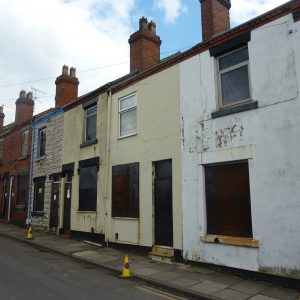
The number of long-term vacant properties increased by 5.3% to 216,186 in 12 months to October 2018, compared to a 2.6% rise the previous year, according to the latest figures released by Project Etopia.
Prior to this, the number of long-term vacant properties had dropped every year since 2008.
Regional overview
The report showed that of all towns and cities in England, Portsmouth saw the biggest percentage rise in long-term empty homes last year, with 101.5% more properties standing empty, totalling 939.
Hartlepool saw the second biggest rise of 53.8% to 726, while Eastbourne posted the third largest increase of 48.4% to 518.
Birmingham had the highest overall number in the country with 4,283 long-term vacant homes, barely changed on the previous year and rising just 0.07%, followed by Durham with 4,130 and Bradford with 4,090.
London has also seen another rise in the number of long-term empty homes, its second increase since 2009. The total number of long-term vacant properties in the capital grew 11.1% to 22,481 in 2018, representing £10.7bn worth of property.
High prices and low affordability
Joseph Daniels, CEO of Project Etopia, said that empty property remains a national scandal that is not going away. He pointed to a collective failure to really get to grips with the problem.
“The stubbornly high number of empty homes is compounding the housing market’s deeply entrenched problems with lack of supply remaining a key driver of high prices and low affordability,” said Daniels.
“New homes are not being built fast enough and the constant spectre of abandoned properties aggravates an already tough market, particularly for first-time buyers who desperately want to claim the keys to their first property.”
However, John Phillips, group operations director at Just Mortgages and Spicerhaart, revealed that building more homes may not help reduce the housing crisis.
He said that one of the reasons property prices have exploded in the past decade is thanks to investment, particularly in London and particularly by foreign investors, into the UK property market. This pushed prices up so high that people who actually want to live in these homes cannot afford to buy them, he said.
And, while recent government subsidies – such as Help to Buy and the freeze on stamp duty – and the increasingly important role played by parental deposits, have helped younger people get onto the property ladder, they have also contributed to the rise in house prices.















